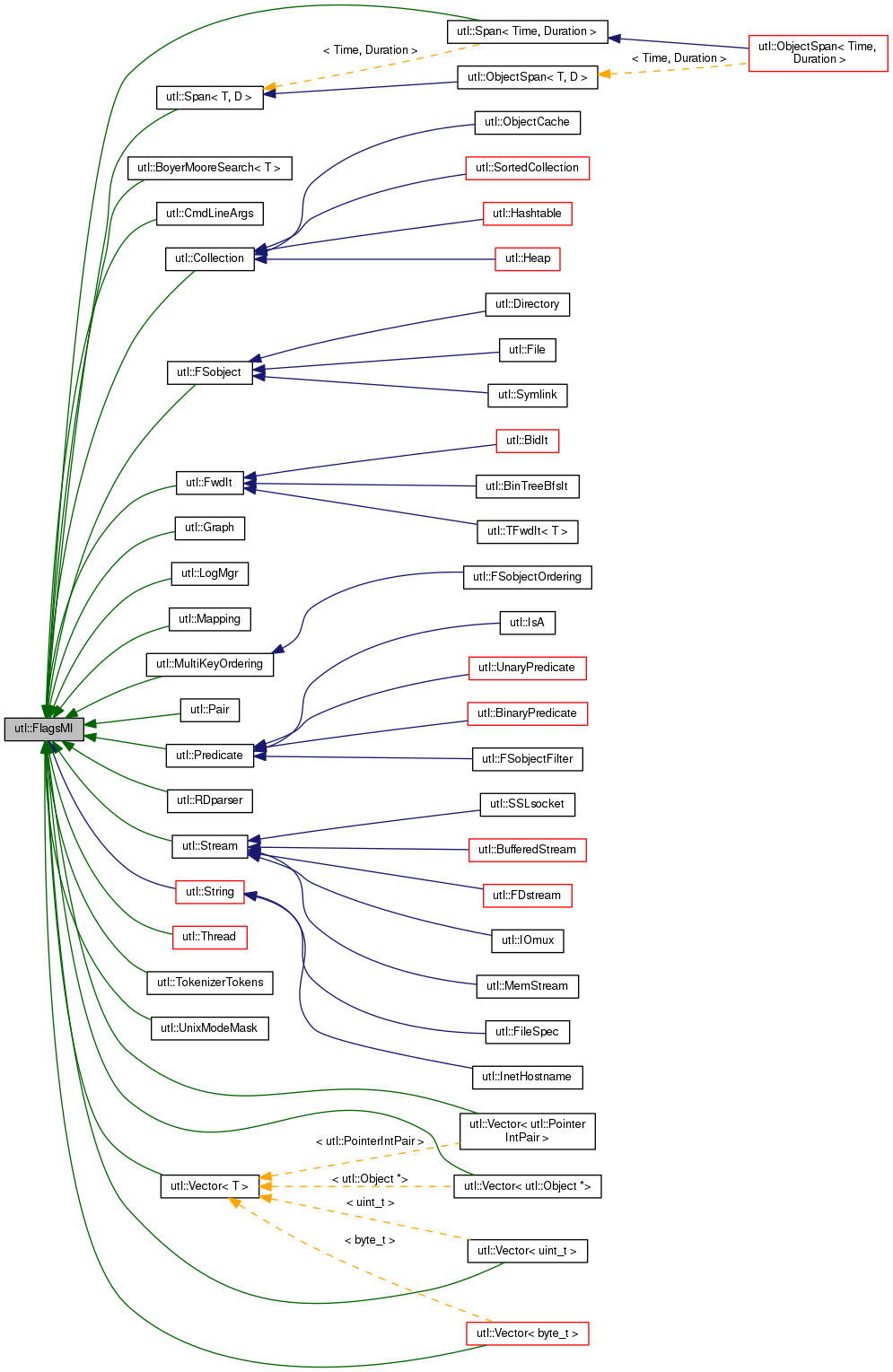Mix-in to provide 64-bits for space-efficient storage of up to 64 boolean flags. More...
#include <FlagsMI.h>

Public Member Functions | |
| FlagsMI () | |
| Constructor. More... | |
| virtual | ~FlagsMI () |
| Destructor. More... | |
| void | copyFlags (const FlagsMI &rhs) |
| Copy the given flags. More... | |
| void | copyFlags (const FlagsMI &rhs, uint_t lsb, uint_t msb) |
| Copy (some of) the given flags. More... | |
| void | copyFlags (uint64_t flags, uint_t lsb, uint_t msb) |
| Copy (some of) the given flags. More... | |
| bool | getFlag (uint_t flagNum) const |
| Get a user-defined flag. More... | |
| void | setFlag (uint_t flagNum, bool val) |
| Set a user-defined flag. More... | |
| uint64_t | getFlagsNumber (uint64_t mask, uint64_t shift=0) |
| Get a multi-bit value in the flags data (which is stored as one 64-bit integer). More... | |
| void | setFlagsNumber (uint64_t mask, uint64_t shift, uint64_t num) |
| Set a multi-bit value in the flags data (which is stored as one 64-bit integer). More... | |
| uint64_t | getFlags () const |
| Get the flags. More... | |
| void | setFlags (uint64_t flags) |
| Set the flags. More... | |
Detailed Description
Mix-in to provide 64-bits for space-efficient storage of up to 64 boolean flags.
You can also use some of the bits to store multi-bit patterns if you wish.
Constructor & Destructor Documentation
◆ FlagsMI()
◆ ~FlagsMI()
|
inlinevirtual |
Member Function Documentation
◆ copyFlags() [1/3]
|
inline |
◆ copyFlags() [2/3]
◆ copyFlags() [3/3]
Copy (some of) the given flags.
- Parameters
-
flags right-hand-side flags lsb least significant bit (0-63) msb most significant bit (0-63)
Definition at line 65 of file FlagsMI.h.
References ASSERTD, utl::serialize(), and utl::uint64_t_max.
◆ getFlag()
|
inline |
Get a user-defined flag.
- Returns
- requested flag (bool)
- Parameters
-
flagNum flag # (0 <= flagNum <= 63)
Definition at line 90 of file FlagsMI.h.
References ASSERTD.
Referenced by utl::FlagGuard::FlagGuard().
◆ setFlag()
|
inline |
◆ getFlagsNumber()
Get a multi-bit value in the flags data (which is stored as one 64-bit integer).
Return the bitwise AND of the flags with the given 64-bit integer.
- Parameters
-
mask bitmask (e.g. 0x3 for a two-bit number using the two least-significant bits) shift the least-significant bit in the number (e.g. 0 if using the two lowest bits)
◆ setFlagsNumber()
Set a multi-bit value in the flags data (which is stored as one 64-bit integer).
- Parameters
-
mask bitmask (e.g. 0x3 for a two-bit number using the two least-significant bits) shift the least-significant bit in the number (e.g. 0 if using the two lowest bits) num the number to set in the identified portion of the flags data
◆ getFlags()
|
inline |
◆ setFlags()
|
inline |
The documentation for this class was generated from the following file:
